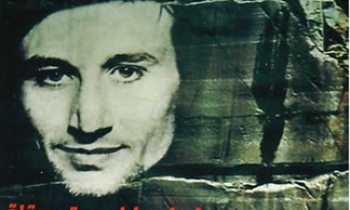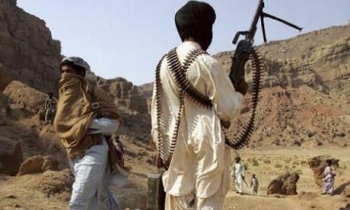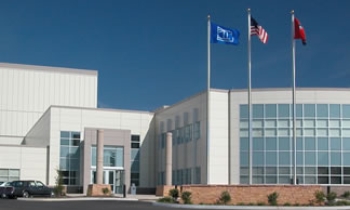The release of two journalists in Venezuela during the past few days even as they await trial provides an opportunity to take another look at the country's press laws, Reporters sans Frontières (RSF) has said.

Ibéyise Pacheco of the El Nacional daily was released from house arrest on March 21, while Gustavo Azócar Alcalá, presenter of the programme "Café con Azócar" on the Televisora del Táchira regional TV station and an El Universal correspondent, was released from a prison near San Cristóbal in the western state of Táchira on March 22.
"We hope these releases will help clear the air between the government and privately-owned news media," RSF said. "They should offer the opportunity for both sides to undertake a concerted reexamination of the law on the social responsibility of the broadcast media and the criminal code reform law, which have provisions that violate press freedom." It said, "The need for this debate is underscored by the fact that the attorney-general has himself referred 25 of the new criminal code's articles to the supreme court on the grounds of unconstitutionality."
Last year, the Venezuelan National Assembly had approved revisions to the disrespect portion of the Venezuelan Penal code, expanding the number of government offices covered by disrespect provisions, and in some cases, lengthening sentences for those found guilty. Other versions of this provision of the law have been in effect, though, for decades before President Hugo Chávez came into office.
The Inter-American Press Association (IAPA) released a report March 20 saying that freedom of expression was under threat in Venezuela. Chávez criticised the report, but also said that when it came to these matters public officials need to have "thick skins" and not be "hypersensitive." He said, according to Venezuela Analysis, as President he would not bring cases against journalists because some journalists "want someone to fall into this in order to say afterwards that the government has journalists as prisoners and it's an attack against freedom of expression."
An outspoken critic of President Hugo Chávez and his government, Pacheco was the target of two libel suits by Col Angel BellorÃn for claiming in her column that he used forged diplomas to become a lawyer. As a result of one of the suits, she was initially given a nine-month prison sentence that was reduced on March 15 to house arrest with permission to continue working. The house arrest was lifted on March 21.

In the other case, she acknowledged to the plaintiff that she was wrong. Under article 492 of the criminal code, punishment is annulled when the plaintiff forgives the offence. The lawsuit was dropped after an arrangement was reached between the two sides.
"I am profoundly sorry that because of that piece, Colonel BellorÃn found his honour and reputation affected, it was never in my spirit the intention of discrediting him or exposing him to public scorn�Having adequately reviewed the documentation given to my lawyers, which demonstrate the academic and professional merits of Colonel BellorÃn, of which I am now convinced, our long judicial confrontation has been avoided. Equally, I confirm my commitment in my professional work as a journalist, my fight for truth and my respect and fulfillment of the Ethical Code of Journalists," Pacheco said.
Pacheco has said she's the victim of political persecution. "What a coincidence that the accusing parties are the legal representatives of the famous rulers of this regime, that there has been an absolute lack of balance in this entire process, because while all the accusing parties have been given privileges, kindness, and benefits, they have treated me as what I feel I am, a target of this government that considers me part of the dissidence. What's more, they consider me dangerous, because I look for the truth," she told the Venezuelan daily 2001, a week before apologising.
Pacheco, however, still faces prosecution on a charge of "false statements" brought by state prosecutor Didier Rojas over a claim in her "En Privado" column in El Nacional on May 9, 2003 that the kidnapping and execution of Chávez opponents had been planned in the presidential palace. She appeared before a Caracas court on January 14 on this charge. The case is pending.
Azócar was charged with fraud and embezzling public funds as a result of a complaint brought by Táchira state governor Ronald Blanco La Cruz. On March 7, a San Cristóbal judge ordered that he should be held in the nearby prison of Santa Ana until the investigation was completed. But his lawyers appealed and, in special hearing on March 22, the judge reversed his decision and ordered Azócar's release.

Despite these encouraging developments, the law on the social responsibility of the broadcast media that was adopted on November 24, 2004 and the criminal code reform that took effect on March 16, 2005 continue to be a source of great tension between the government and privately-owned press. On March 21, the head of the TV station Globovisión, Federico Ravell, asked the supreme court to quash the social responsibility law on the grounds that it "favours self-censorship."
The supreme court was already asked to overturn parts of the criminal code reform on November 22 in a petition from within the government, namely attorney-general IsaÃas RodrÃguez. At the time of its adoption, RodrÃguez said he found some of its provisions to be "excessively punitive." In his petition, he asked the court to overturn 25 of the new criminal code's 546 articles on the grounds of unconstitutionality, especially those concerning the crime of "insult." The court has so far agreed to modify the form of these articles but has not yet ruled on their substance.
In a another defamation case, Marianella Salazar, another commentator for El Nacional, was charged March 13, under article 241 of the Penal code which prohibits falsely accusing of someone of having committed a crime. The case stemmed from articles she published in her column "Artilleria de Oficio" on June 11 and 18, 2003, in which she stated that Vice-President José Vicente Rangel and the governor of the state of Miranda, Diosdado Cabello, were allegedly involved in administrative irregularities during negotiations for the purchase of radar equipment. Both men filed a complaint against her, requesting a public hearing. The journalist was summoned to make a statement and the suit was rejected.









